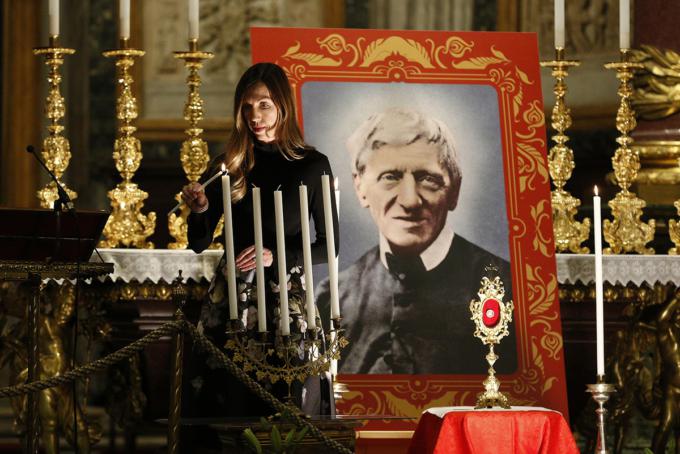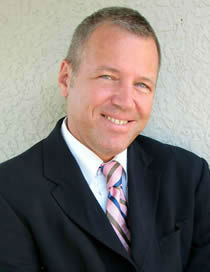
Spirituality

Pakaluk
The memorial of a canonized saint is typically his "dies natalis," his "birthday," the day he passed from this life and was born into everlasting life. But St. John Henry Newman died on Aug. 11, which the universal church has long celebrated as the feast day of the beloved St. Clare. Therefore, Newman's memorial was set for the day of his conversion, Oct. 9. On that day, the Dominican priest, Blessed Dominic Barbieri, went to Newman's rooms in Littlemore, England, and heard his confession, receiving him into the Roman Catholic Church.
The desk on which Newman wrote "Development of Christian Doctrine" was like an architect's desk -- I have seen it -- a single solid and large rectangle of dark wood, on a pivot. Newman pivoted the board flat, making the desk a table, and there, the good Dominican father celebrated the first Mass, which Newman participated in. That was the event which was commemorated on Newman's feast day observed last week.
But the website of the Liturgy Office of England and Wales gives this additional, interesting commentary. "One of the reasons that 9 October was chosen," they say, "was because it falls at the beginning of the University year; an area in which Newman had a particular interest." It follows that Catholics who work in academia are invited to reflect on Newman's teaching and example for their work in the new academic year.
But what did Newman teach about academia?
First, he taught that a university, which he said was a place for universal knowledge, had as its main task the imparting of intellectual excellence to its students -- "the cultivation of the intellect, as such ... nothing more nor less than intellectual excellence." A university does not exist to do research, he said -- as that task can be done better by research institutes -- but rather to form students, and yet not in their moral virtues, since in that case a university would turn into a seminary, but rather in their intellectual excellence. "There is a physical beauty and a moral: there is a beauty of person, there is a beauty of our moral being, which is natural virtue; and in like manner there is a beauty, there is a perfection, of the intellect."
Newman thereby rejects all common views today. Today's "research university," even on its own best terms, does not meet his definition of university, because the "telos" of Newman's university is not truth, per se, but the intellectual excellences of the students. Nor do vocational schools and programs have the correct goal: a university's aim is certainly not to equip students for jobs.
But, second -- we must not omit to say -- the primary intellectual excellence for Newman is "knowledge for its own sake." He prizes accuracy of thought, clarity of expression, order in investigation and expression, subtlety, elegance, and appropriate method. He appreciates and describes a desirable broad "philosophical" frame of mind. And yet, he is clear that there can be no substantive intellectual excellence without knowledge, and that knowledge is its own end: its value in its mere possession is higher than any value of its use.
Newman thereby sets himself against common views today which admit that university students are meant to be trained intellectually but take the object of such training to be merely the imparting of various "methods" or "modes of inquiry."
Then, third, Newman poses the question, if "there is a knowledge worth possessing for what it is, and not merely for what it does," what could this knowledge be? This is the path by which he arrives at his famous assertion in "The Idea of a University" that there can be no genuine university which does not include a school or department of theology which advances knowledge of God.
The reason is that "knowledge worth possessing for what it is" must be synthetic and comprehensive. But as God is the central reality of the world, indeed, the alpha and omega among causes, we cannot attain the desired sort of knowledge, unless we have as much knowledge of God as is possible and grasp all other knowledge in relationship to God. "Religious doctrine is knowledge, in as full a sense as Newton's doctrine is knowledge. University Teaching without Theology is simply unphilosophical" -- that is how Newman puts it.
This is to say, both "secular" universities -- and also ostensibly Christian universities where theology as a body of truths has been replaced by the study of the human phenomenon of "religion" -- are not universities at all for Newman.
Fourth, he adds that in a Christian university, Christianity should be proposed to the students as an attractive way of life, specifically through the intellectual excellence of their Christian professors and tutors. Newman is therefore at odds with our view that secular universities are acceptable so long as there are good Newman programs (ironic!) that students can attend, or that the main way in which Christianity should enter into university education is through "service programs" and pious practices that are part of "student life."
In short, I am led to say on this anniversary of Newman that almost nothing which Newman cared so deeply about is being put into practice. Yet it is a consolation of sorts -- a perverse consolation! -- that the same is true about what the Council Fathers of Vatican II cared about, and the very teachings of Christ!
- Michael Pakaluk, an Aristotle scholar and Ordinarius of the Pontifical Academy of St. Thomas Aquinas, is a professor in the Busch School of Business at the Catholic University of America. He lives in Hyattsville, MD, with his wife Catherine, also a professor at the Busch School, and their eight children. His latest book is "Mary's Voice in the Gospel of John." You may follow him on X (twitter) @michael_pakaluk.
Recent articles in the Spirituality section
-
Masters week foreknowledgeMichael Pakaluk
-
Why is Lent 40 days?Michael Pakaluk
-
The eloquent ambiguity of 'I believe'Bishop Robert Barron
-
You don't get what you pay forMichael Pakaluk
-
The witness of a consecrated lifeBishop Robert Barron























